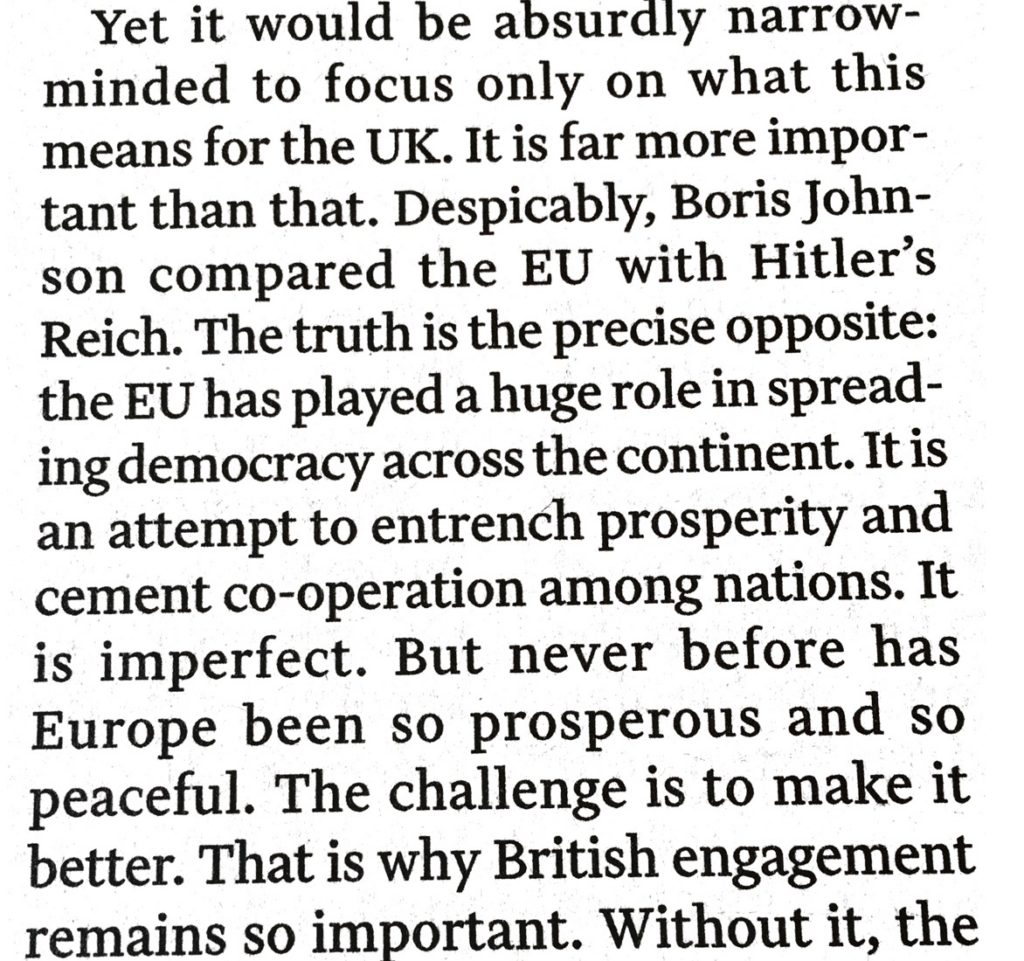What is wrong with these people? I don’t know Michael Gove, but when he was Education Secretary and we were campaigning for a change in the GCSE ICT curriculum he was courteous and appeared rational, or at any rate cerebral. But according to this report he has today been comparing the economists who think that leaving the EU would be a mistake for Britain to the Nazi-recruited scientists who challenged Einstein’s theory of relativity.
The Justice Secretary made the historical comparison to Einstein after being asked why voters should not listen to the economic organisations warning about the impact of an Out vote.
“I think the key thing here is to interrogate the assumptions that are made and to ask if these arguments are good,” Mr Gove said during an interview with LBC Radio.
“We have to be careful about historical comparisons, but Albert Einstein during the 1930s was denounced by the German authorities for being wrong and his theories were denounced and one of the reasons of course he was denounced was because he was Jewish. They got 100 German scientists in the pay of the government to say that he was wrong and Einstein said ‘Look, if I was wrong, one would have been enough.’”
Hmmm… Time for a lie-down in a darkened room, methinks.

